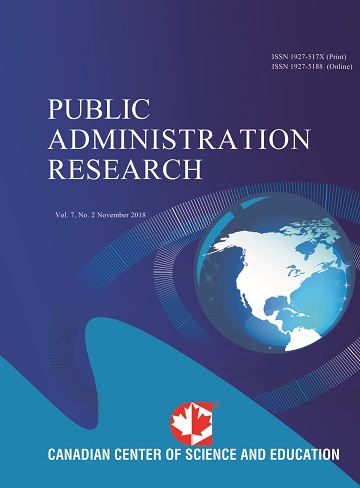Unveiling Factors Promoting Patronage and the Spoils System in Iran’s Public Organizations: A Phenomenological Study
- Abolfazl Razavian
Abstract
Aim: This phenomenological study explores factors driving the spoils system in Iran’s public organizations.
Background: The spoils system, favoring political loyalty over merit, weakens governance, especially in Iran’s post-election administrative reshuffles.
Method: Employing Colaizzi’s method, 17 employees from a municipality, a provincial ministry, and two state-owned enterprises in Isfahan were interviewed, following COREQ guidelines.
Results: Five themes emerged: unchecked discretionary authority, weak human resource management, ineffective oversight, prevalence of anti-values, and external influences like political interference, economic sanctions, and regional disparities, highlighting systemic, cultural, and psychological roots of patronage.
Conclusion: The findings enhance principal-agent theory by integrating Iran-specific dynamics, confirming patronage’s entrenched nature.
Implications: Conducted as a master’s thesis, this study proposes reforms—merit-based recruitment, digital transparency tools, and ethical training—offering innovative governance solutions for developing countries facing similar challenges.
- Full Text:
 PDF
PDF
- DOI:10.5539/par.v15n1p50
Journal Metrics
h-index (2017): 7
i10-index (2017): 6
h5-index (2017): 7
h5-median (2017): 13
Index
- COPAC
- CrossRef
- DTU Library
- EBSCOhost
- EuroPub Database
- Excellence in Research for Australia (ERA)
- Genamics JournalSeek
- Ghent University Library
- Google Scholar
- Harvard Library
- Infotrieve
- Jisc Library Hub Discover
- LOCKSS
- Mir@bel
- Norwegian Centre for Research Data (NSD)
- Open J-Gate
- PKP Open Archives Harvester
- Publons
- ROAD
- Scilit
- SHERPA/RoMEO
- Stanford Libraries
- Ulrich's
- UniCat
- Universe Digital Library
- UoS Library
- WorldCat
Contact
- Gabriel TaiEditorial Assistant
- par@ccsenet.org
